#Might Millie Novak
Explore tagged Tumblr posts
Text
Moodboard of Mighty Millie Novak by Elizabeth Holden | BLOGTOUR
Hey there, we are back with another booktour! Have you ever roller skated or taken part in roller derby? I never knew much about roller derby but this book branched out from mainstream sports in fiction and delved into the world of roller derby through Millie’s story. It was a fun read. If you are interested to know more about this book, you can check out others post in this tour. Scroll down…
0 notes
Text
Exclusive Cover Reveal: The Mighty Millie Novak by Elizabeth Holden
Today on the site I’m delighted to reveal the cover of The Mighty Millie Novak by Elizabeth Holden, a Sapphic YA contemporary releasing August 20, 2024 from Flux Books! Here’s the story: Social anxiety, her parents’ divorce, and messy friendships won’t stop Millie’s pursuit of what she wants—in roller derby or in love. But her own lies might . . . Sixteen-year-old Millie Novak is stuck in an “if…
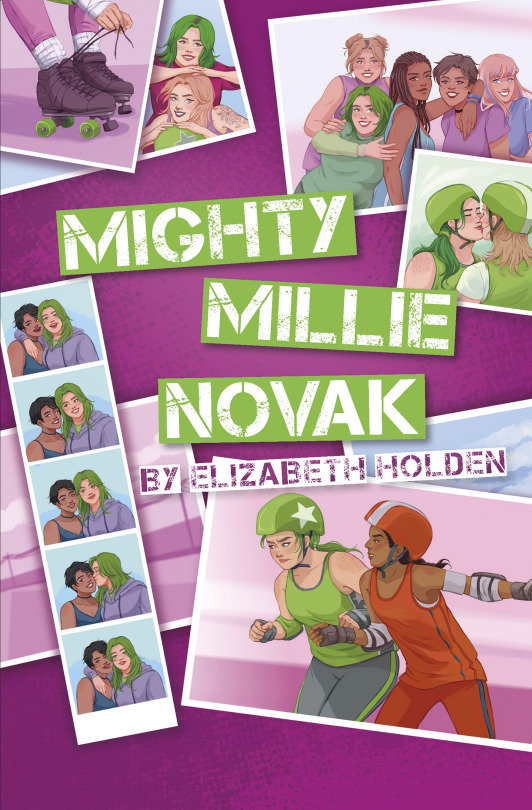
View On WordPress
29 notes
·
View notes
Text
Loss in common:
Enter Millie, The Prickly-but-Hopeful Fixer


[We note that, even after all this time, Millie's building carries the MoL Aquarian star of protection, and it's still Winchester Garage, not...whatever-her-maiden-name is.]
When we first meet Millie, she's bitter. As the one who "kept the lantern on," "the one who stayed," she's hurt and defensive, a lot like how Dean grows to be in latter seasons of SPN.
(Even post-demonicity, Dean is still expected to be the soft place to fall for everyone. Even after Jack kills Mary, Cas has this expectation of Dean's soft-heartedness: "it's possible he could work through this. One day, he may explode and let it all out and breathe deeply and move on.")
Anyway, Millie!
Her reunion with John is part passive-aggressive but loving. We see that Millie, like Dean, has intense abandonment trauma. She speaks abrasively-but-affectionately. She calls John "Kid, Kiddo, etc." which was a go-to with Dean for both Claire Novak and Jack Kline.
JOHN: Love what you've done with the place. MILLIE (passive-aggressive): Well, my husband and son walked out on me, so. It's the best I could do. (growing emotional) Dammit. Welcome home, Kiddo.
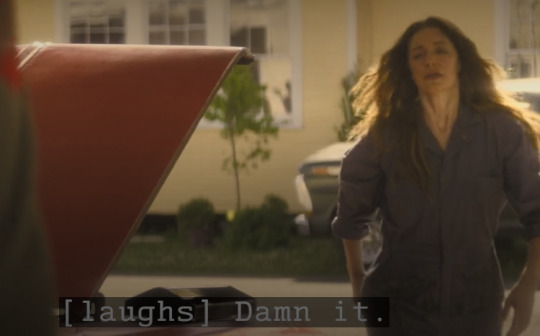
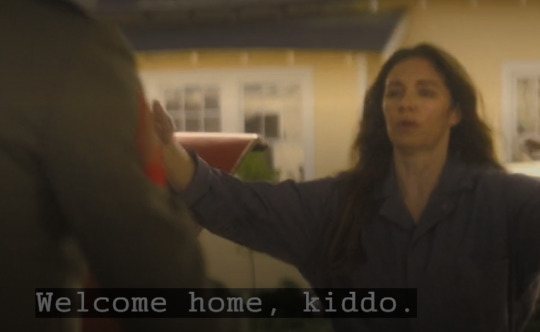

Gruff, abrasive, imperfect? Maybe. But full of love.
Alt John and Millie are united by the common loss of Henry, just as Prime John, Sam, and Dean were united by the common loss of Mary.
John thinks Henry walked out on them, but I think Millie is likely more complex. With her tacit knowledge of the Men of Letters, I think it's reasonable that she at least suspects that he might be dead.
What does that tell us about her? It tells us that the loss of Henry was unbelievably painful--it's probably easier for her to consider he left than the very likely truth: his demise.
She's a fixer. That's what she does.
She holds out hopeless hope.


JOHN: I'm fine, Mom. MILLIE: The Hell you are. You've been chasing your dad since he walked out that door. I know that's why you enlisted. But it is time to let the past go, kiddo.
But Millie isn't healed either. She hasn't let the past go, even as she pursues her dream of being a mechanic and owning a garage (like her father). Letting the past go hasn't helped her heal.
In fact, carrying on hunting and the MoL business is what seems to soothe her loss, giving her new meaning and purpose. Millie and John's push-pull dynamic with hunting is much like how it was with Ellen and Jo Harvelle.
///
But overall, we see what Henry's absence wrought. It's just as Henry feared in SPN Prime (9x17 Mother's Little Helper):
HENRY: Therein lies the problem. As our initiation grows closer, I... I worry that this might be a selfish endeavor on my part. JOSIE: Selfish. How? HENRY: If anything were to happen to me, what of John? Millie? JOSIE: They'd be proud to know that you answered the call. HENRY: No. My wife would be a widow, and my son fatherless. I don't expect you to understand. You don't have a fam--[he pauses] I'm sorry, Josie. I didn't mean it that way. JOSIE: I know, Henry. You're a good man. Millie is lucky to have you.
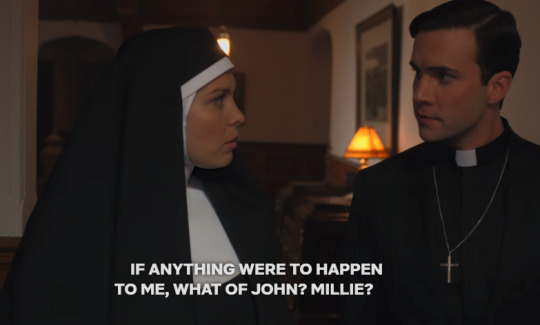

This directly parallels Cas and his allegiance to his work, Heaven, (Heaven is a truck, and Cas is a truck-driver; Dean thinks he's Josie when he's actually Millie).
It also beings to mind the visual of ("little John") Jack's entrance as he wanders around muttering, "Father. Fa-ther. Father. I need to find him. Castiel. He was supposed to be here," while looking for his long-expected, lost father in 13x01 Lost and Found.
But it's also an off-key parallel to prime John, who would become as Millie was, a bereft widower in the cold, floundering and ill-equipped to handle the dangers of the supernatural world.
///
Enter Mary, Action Hero

(Note: Mary's got a short range, so I love how she uses speed to her advantage to get larger targets off-balance.)
///

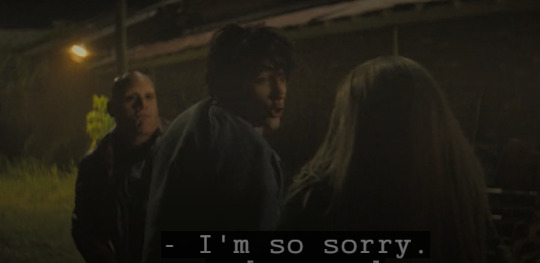
And importantly, John...is NOT allowed to look cool. It's a RULE. He's a dorky...little...guy.
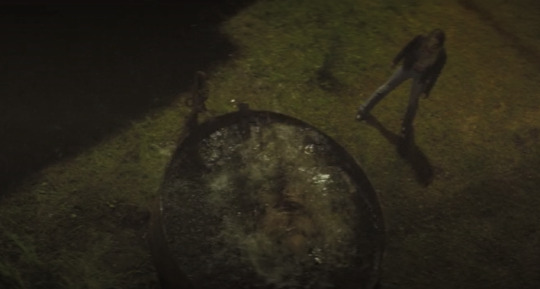
Mary knocks the demon into a blessed holy water vat, a call-forward to something prime John will do in SPNprime 01x21 Salvation.
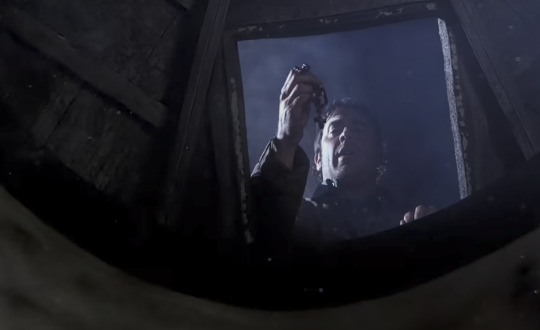
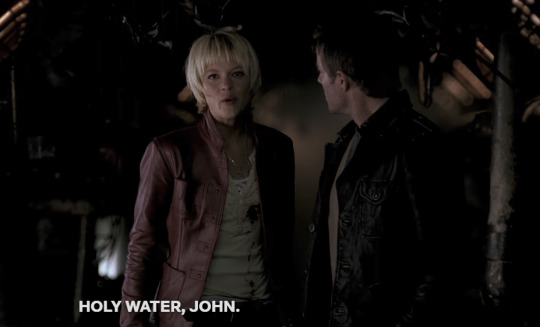
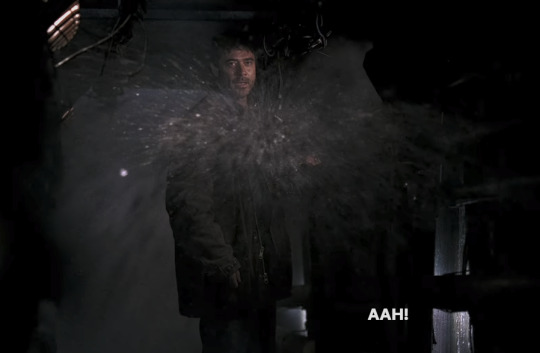
//
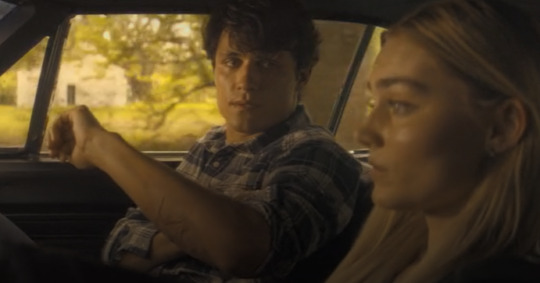
When Alt John and Alt Mary meet:
Mary's father has been absent (missing) from her life for a short time, and John's father Henry has been absent for most of his life, just as when Dean and Cas meet, theirs too is a tale of missing fathers. Cas's father was absent for all of his life, and Dean's flaky dad has been gone for a (relatively) short time. It also very obviously parallels Sam and Dean searching for their missing father.
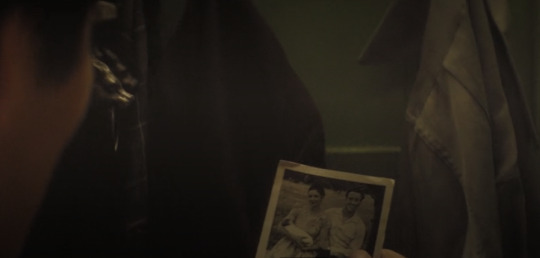

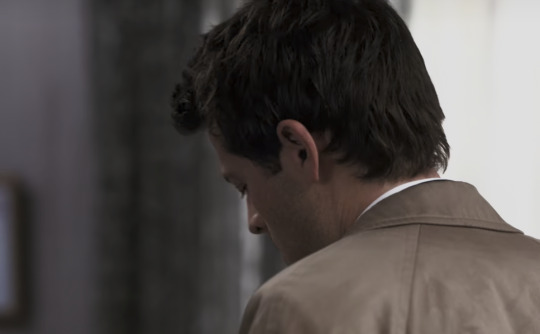
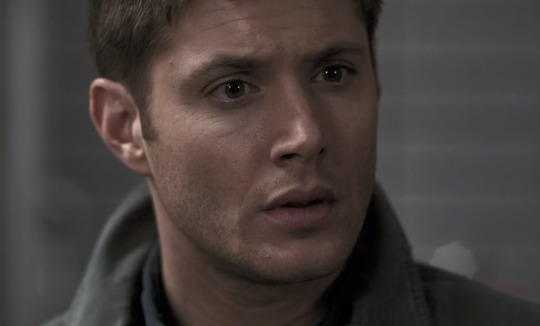
When they break inside the Men of Letters clubhouse, Mary keys into John's emotions about his father. This reminds me of of the first time Dean keyed in really hard to Cas's emotions in 5x16.
///
JOHN: How do you cope with it all? MARY (wryly, jokingly): I'll let you know when I find out. (SPNwin 1x01)
//
DEAN: Yeah, I get it. I know how you feel. CASTIEL: How do you manage it? DEAN (wryly, jokingly): On a good day, you get to kill [The Whore of Babylon]. (SPN 5x17)
///
Recent losses of friends & family:

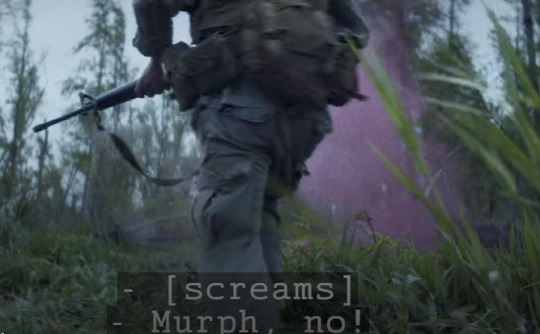
Additionally, Mary and John have both suffered recent losses. Mary lost her narrative twin Maggie, and John lost his comrade Murph to war.
[Mary's cousin went to Hell, just as Sam's brother went to Hell in season in vintage and mid-SPN.] Mary's hunting family was torn asunder, parents separating.
And John? WIth war, John signed up to fill a void left by his father, to find meaning in life.
We can even recall Dean's words to Gordon in 2x03 Bloodlust, how Dean struggled with the idea of "The Invincible Dad" and how his death made the word more terrifying, how it left a wound of depression inside of him that he sought to fill with meaning through work:
DEAN: Yeah. Yeah, you know. He was just one of those guys. Took some terrible beatings, just kept coming. So you're always thinking to yourself, he's indestructible. He'll always be around, nothing can kill my dad. Then just like that (snaps) he's gone. I can't talk about this to Sammy. You know, I gotta keep my game face on. (clears throat) But, uh, the truth is I'm not handling it very well. Feel like I have this - GORDON: Hole inside you? And it just gets bigger and bigger and darker and darker? Good. You can use it. Keeps you hungry. Trust me. There's plenty out there needs killing, and this'll help you do it. Dean, it's not a crime to need your job.
Dean lost his dad, and Gordon lost his sister. This emptiness is depression. John lost his dad and suffered that loss all his life. He signed up to the war for the GLORY OF PURPOSE. He didn't sign up to the war for more pain and grief, but that's exactly what he got.
What's the thing Dean can't fill up, not with booze or love or even sex? It's grief and pain. It can only be filled with love, which is what Cas's confession narratively does in 15x18.
It's also what Mary's love and the love of the Core 4 will eventually do for John.
///
SPN Prime season 8 side-parallel: Connections of recent grief ALSO calls to mind season 8, how Sam connected with Amelia when they had both suffered a loss, Sam lost his narrative twin to Purgatory and Amelia lost her husband to war.
Theirs was a fast-paced reactionary relationship born of grief, something that pinged and annoyed Amelia's father, leading him to be very passive-aggressive with Sam. (Her father was a dick, but he's both a soldier himself and does know her best and probably has her best interests in mind. He recognized that was Amelia mid-freakout, OOC. He pings that her out-of-characterness is a weird reaction to grief).
He was right to be concerned about the shallowness and stability of it. These types of reactionary relationships are well-known: they can be very shaky, melodramatic, idealized, and weak when stress-tested.

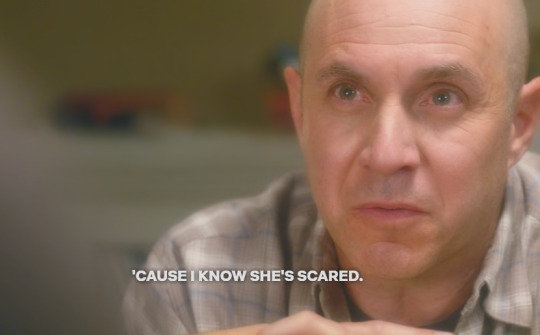
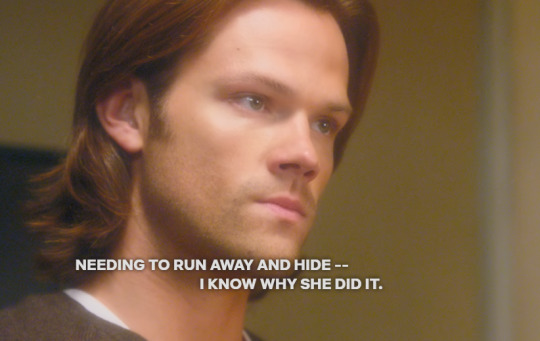
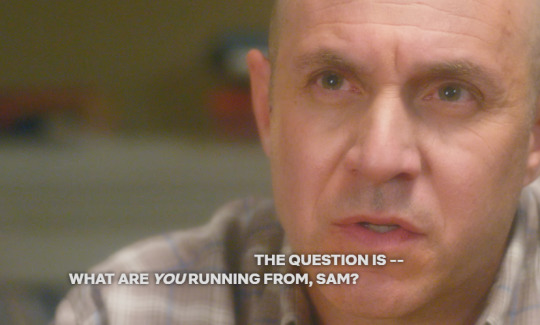
Sam (and vintage Dean) both have this tendency to be all-in or all-out when it comes to The Cause. Neither strike a balance very easily. They tend to either be ALL IN for the Perfect War with Perfect War Companions at Your Side...or rushing into something tenuous that represents a weak idea that winds up unsatisfying because it's not genuine: Perfect White Picket Fence or Howling-at-the-Moon Dishibitory Party Life.
In SPNwin, John is doing a lot of running, too. He rushes into the thing with Betty (weak and tenuous), then he rushes into war, he rushes into hunting, and he runs into the relationship with Mary.
This theme of Running into Danger / Running From Danger persists. John certainly struggles with it, BUT in a departure from his past behavior, this new thing with Mary gets a lot of stress-testing, eventually moving from limerence into turbulence, power struggle, and de-idealization. (SPNwin 1x12, The Tears of a Clown)
///
SO.
Mary and her ragtag gang of friends embark on a journey to look for the missing Samuel Campbell the way Sam and Dean look for the errant John Winchester, the way the Banes twins look for their mother Tasha Banes in Twigs, Twine, & Tasha Bane.
Certainly the core 4 are all "running scared" and clinging to one another, having all lost loved ones in a variety of ways. They are united in empathy over their respective losses:
John (dad, comrades)
Mary (narrative sibling, missing dad, splintered family and parental separation)
Carlos (whole family killed by a monster)
Lata (no-contact with her family because they allowed her beloved nanny to die; nonsensical/cruel hierarchy of human society)
Ada (husband lost to madness, son potentially a puppy-destined-to-be-wolf)
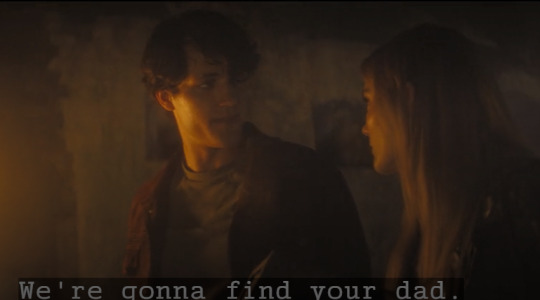

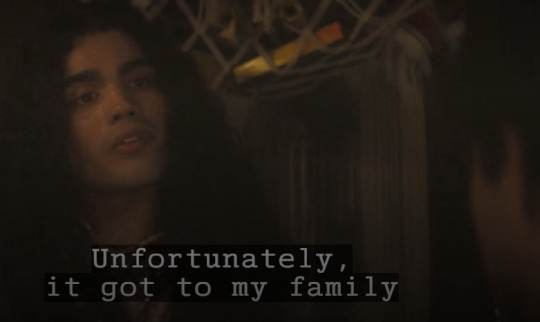
And finally we get Henry's letter:
If you're reading this, then I'm gone. I'm sorry I kept the truth from you, John. There's a dangerous world out there, and our family has fought that danger for centuries. The answers to all your questions are at the address below. I love you and your mother. Always.
I think this idea of Henry Winchester as a secret-keeper, and as Mary-prime as a secret-keeper fed into what we know about John-prime turned into: a neuroses of paranoia and over-preparedness.
But thanks to Dean, Alt John has some new tools to work through this: knowledge. Even his anger is useful, openly telling his mother how disappointed and betrayed he feels over being kept in the dark. For her part, she gives him her emotional truth: that she only wanted to protect him.
It's the first healing step for both of them.
#writer robbie thompson#director glen winter#millie winchester#henry winchester#john & millie#henry cas parallels#john cas parallels#john sam parallels#millie dean parallels#john jack parallels#josie sands#lata#alt john#prime john#prime dean#prime cas#alt mary#amelia richardson#spnwin 1x01
10 notes
·
View notes
Text
Picnic

Director Joshua Logan Stars William Holden, Kim Novak, Rosalind Russell USA 1955 Language English 1hr 55mins Colour
Surprising, satisfying mid-West, mid-century drama
It’s 1955, and small-town America is rich with simmering generational and sexual tension, or at least that is how Hollywood saw it. And unlike the pushy newcomer television, the movies could take everyday problems and render them gloriously epic with Technicolor and CinemaScope.
Like Bye Bye Birdie, Picnic is about the effect of the arrival of untamed masculinity in the heartlands. We’re in Kansas, where Mrs Owens has been bringing up her girls alone since her feckless husband cleared off. Since Picnic was adapted from a play, the daughters are emblematic opposites – big, beautiful, popular Madge (Kim Novak) and small, intellectual, tomboy, dark Millie* (Susan Strasberg). Completing the XX-chromosome household is the lodger, spinster schoolteacher Rosemary (Rosalind Russell), carrying around a lifetime’s disappointment. As someone says later in the movie, ‘I’m telling you, Benson, the women are getting desperate.’
Enter the wild stranger, just hopped off a freight train, bare-chested – as he will frequently be in the movie – and sweaty. This is Hal (William Holden), a man of primal appetites and no fixed abode, the kind Kerouac might have admired, although he is completely devoid of any bohemian tendencies. The movie offers up the suggestion that he might be either (or both) the last free man in an emasculated, hopelessly suburban America and a creature of pure lust and anger unfit to live among civilised beings. Hal is looking for Alan Benson (Cliff Robertson), his old college roommate and the son of the man who owns most of the hulking grain elevators that tower over the town. He’s hoping for a job, something beyond the basic manual labour people are happy to give him but he secretly feels is below him. To connect the dots, Alan, the most eligible man around, is dating Madge, the prettiest girl in town, but not of the expected social caste.
The story takes place over 24 hours, a fair chunk of which is at the town’s Labor Day picnic, a vast community rite to mark the end of summer. This is where the film casts off its theatrical origins and comes to life, plunging us into the unabashed Americana of the day, from the pie-eating contest to a rough-and-tumble three-legged race and finally the arrival down the river, in the paper-lantern lit evening, of the newly elected Queen of Neewollah**. All during which, under the pressure of Hal’s presence, alcohol and the dark shadow of autumn, everything falls apart. As a detailed account of an Americans at play on a very loaded occasion, at times it’s strangely reminiscent of (or rather, anticipates) Richard Linklater’s awesome Dazed And Confused.
Under the obvious theme, there’s a deeper, more telling one. This is a film about aging, from Madge – at 19, warned by her mother to cash in on her beauty fast – to Hal, still in his thirties able to thrill old women and girls but aware that time is running out for him, too. Watching Rosalind Russell play seemingly tough but brittle Rosemary, I’m aware that only 15 years earlier she was trading zingers with Cary Grant in His Girl Friday (in 1955 Grant, of course, was playing opposite 26-year-old Grace Kelly in To Catch A Thief. That’s Hollywood).
Although early on, Picnic threatens to collapse under the weight of its stereotypes and overblown speeches – Rosemary could be on loan from Tennessee Williams, slowly the characters start to breathe. As the film trundles on, Rosemary’s situation becomes heartbreaking before she reaches a strange sort of triumph, I guess. I don’t fully get why the writers have such a downer on poor steady Alan – seemingly sharing his father’s preference for football hero Hal, no matter how irresponsible he is. And what at the time were the film’s shocking selling points – the risqué locker room scene, for instance – are laughable now. But it’s an involving and sometimes moving film. The ending surprised me, too – and I’m entirely not sure what it means. That’s a good thing.
*Having no knowledge of the source play, I half-wondered if a couple of characters have been fused to make Millie – she is burdened with so many character signifiers. It’s hard walking around with a basketball, a sly cig and a copy of The Ballad Of The Sad Café all at once.
**Reread the word carefully.
0 notes